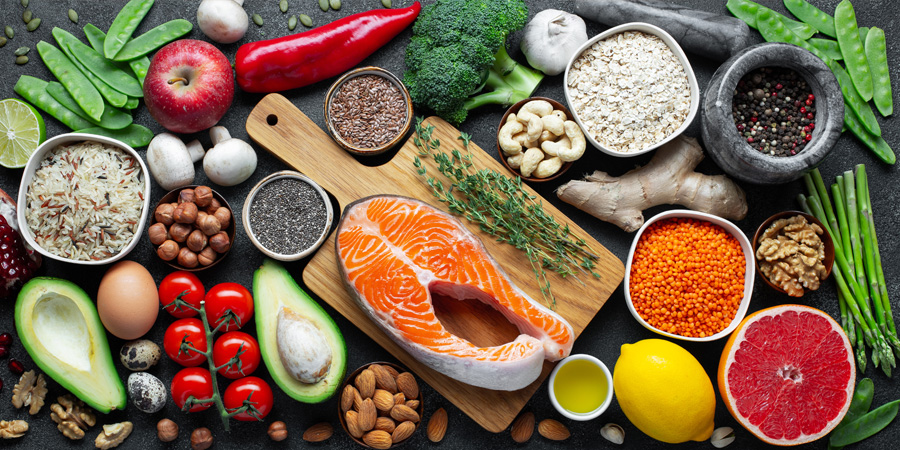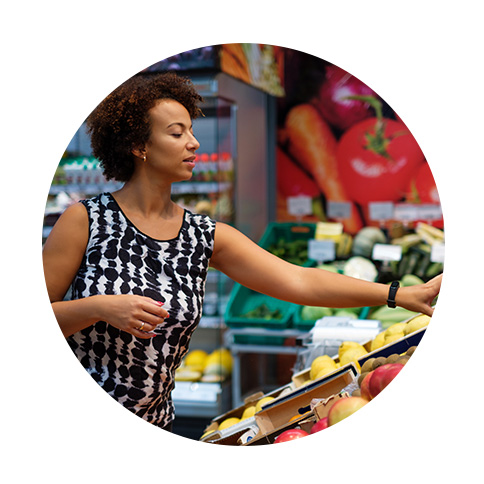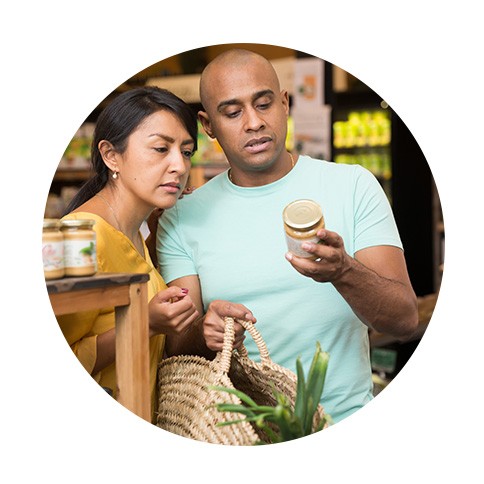Scientific news

Discover five recent scientific articles from our food, health and sustainability watch.

Supermarkets are one of the main places where people buy foods and therefore are strategic for shaping consumption habits. An Australian study investigated whether fruit and vegetable purchases can be increased by social norm nudgesplaced in shopping trolleys. Displays with the message “most shoppers buy fruit and vegetables every time they shop” were placed in shopping trolleys. Analysis of the purchases showed that shoppers who selected trolleys with the social norm nudge spent $9 and bought 1.25 kg more fruit and vegetables than the control group. These results confirm the important role of nudges, particularly those based on social norms, in changing food purchases and habits. The authors stress the need to replicate this study on a larger scale and to evaluate the results in the long term.
Facing climate change and the need to make our food system more sustainable, many countries are seeking to include sustainability in their national dietary guidelines. The 4th revision of the Italian guidelines includes for the first time a dedicated chapter. A recent article shares the Italian experience and identifies several limitations that have complicated the process. In particular, the authors point out that food sustainability is a field of research that is not yet completely mastered and that both global models and consensus documents are lacking. They also underline that data on the perception of Italians on the subject would have been useful to adjust the recommendations. Finally, the Italian experience highlights the need to review the composition of the expert groups mobilised, traditionally focused on nutrition and public health.
Lack of knowledge and training is one of the main barriers expressed by doctors in providing nutritional support to their patients. The “Eat This!, conducted from October 2020 to February 2021, offered future German doctors an online lecture cycle dedicated to nutrition and its impact on health and the environment. The assessment of this training programme shows a slight improvement in the participants’ compliance with dietary and lifestyle recommendations, including fruit and vegetables, nuts consumption and physical activity. These results underline the value of actions similar to the “Eat This!” programme in improving eating habits of medical students and highlight the importance of increasing the emphasis on food in medical curriculum.

Governments and public policies are major actors and levers for influencing consumption through their ability to regulate food environments. A recent study conducted by two European research consortia analyzed the implementation of such policies in 11 European countries using the Healthy Food Environment Policy Index. According to this work, Finland is the country with the highest proportion of policies shaping healthy food environments, with a high level of implementation. Conversely, Slovenia and Poland have the highest proportion of policies with a very low level of implementation. The authors call for urgent and strong policy actions to make food environments healthier and to tackle obesity and chronic diseases.

Front-of-pack nutrition labelling is one of the measures recommended by health authorities to improve consumer information and food choices. A recent study describes and evaluates the implementation of this information in the Americas WHO region. Among the 35 countries studied, 11 have officially adopted front-of-pack nutrition labelling and tooltips keyword=”7″ content = “Argentina, Chile, Ecuador, Mexico, Peru, Uruguay and Venezuela”] have implemented it. According to this work, this information tool has progressively spread and improved both in terms of form and content. Initial data on the effectiveness of these schemes suggest a positive effect with a reduction in the purchase of ‘unhealhty‘ products and a reformulation of products. Authors call on reluctant governments to commit to this approach to improve their population’s health and contribute to the reduction of chronic diseases.
